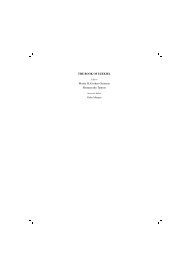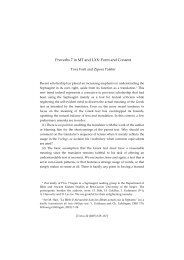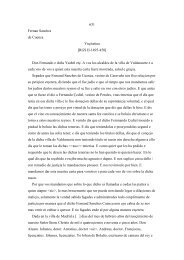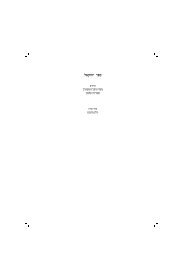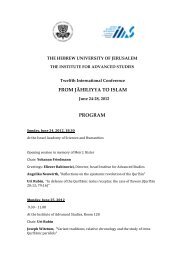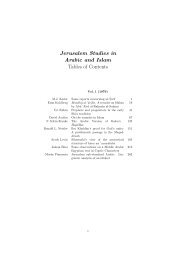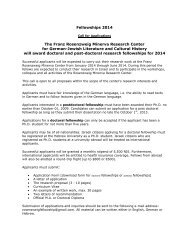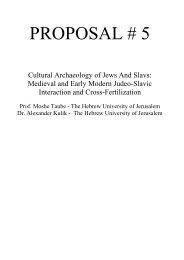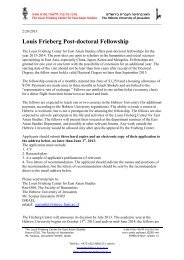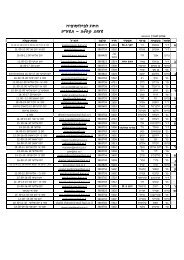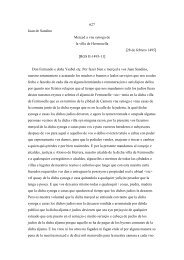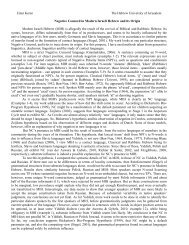Baber Johansen
Baber Johansen
Baber Johansen
Create successful ePaper yourself
Turn your PDF publications into a flip-book with our unique Google optimized e-Paper software.
43<br />
resources of its religious meaning implied in fiqh’s classical model of<br />
norm discussion and norm production and thus open the way to<br />
conceptions of contingency so radicalized that they view contingency as<br />
the general form of existence for all norms and acts. 101<br />
Therefore, many Islamist movements criticize the integration of Islamic<br />
law into the constitutional and positive law of the modern nation state. It<br />
seems to me that this critique produces its own contingency. These<br />
movements attempt to unite in their organizations the two functions that,<br />
from the tenth century on, were separated in the classical model of<br />
religion and politics in Islam: political authority and religious<br />
scholarship. They claim to be the only source of legitimate political<br />
authority in the religious community and, at the same time, the highest<br />
authority for the interpretation of Islam. They insist on the necessity to<br />
realize through direct political action the principles of the sacred law as<br />
they understand and interpret them. Their aim is to create a unity of the<br />
political and the religious that escapes the control of the nation state and<br />
represents the only religiously legitimate form of politics. They thus blur<br />
the frontiers between the learned interpretation of religion and direct<br />
political action. The religious argument increasingly becomes subject to<br />
political constraints and thus renders credible the notion that all<br />
arguments and all norms are contingent and receive their legitimacy, their<br />
validity and their force not from theological and intellectual insights but<br />
from the political requirements of the moment.<br />
It seems, in fact, that many of these movements reinforce the<br />
fragmentation of politics within the nation-states in which they are active.<br />
Will this fragmentation, in the long run, be a positive factor for the<br />
democratization of their societies? Will their opposition to the executive<br />
open a larger field for the citizens’ participation in the political process or<br />
will they play a negative role in suppressing the open debate and the<br />
public liberties that are necessary for the democratization of states and<br />
societies? The answer to this question cannot be searched for in religious<br />
dogmas and beliefs. It is a question of practical politics and remains as<br />
such entirely contingent.



